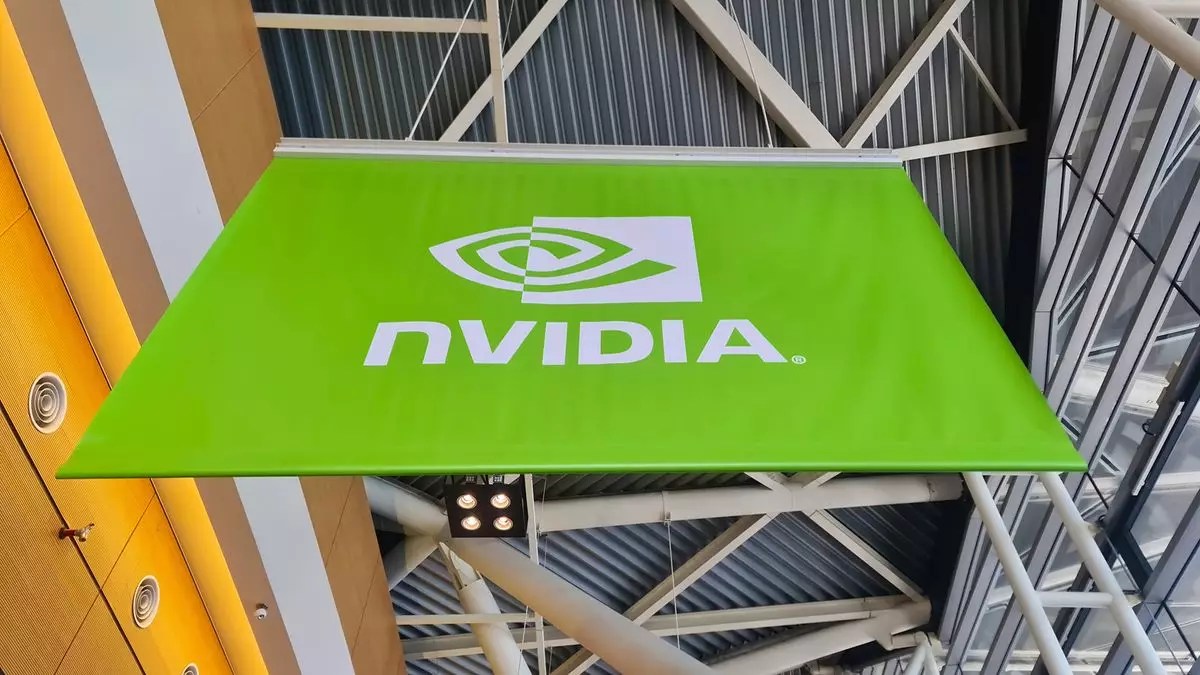In the intricate world of corporate investment, lawsuits often act as a double-edged sword, serving both as a mechanism for accountability and a potential deterrent for innovation. Nvidia, the semiconductor giant synonymous with high-performance GPUs, now finds itself at the center of a legal maelstrom that can significantly shape the horizon of corporate governance. As the Supreme Court wades through complicated legal arguments concerning a resurfaced class-action lawsuit, the implications extend well beyond Nvidia itself. They could potentially redefine the thresholds for securities fraud claims against large corporations in the United States.
At the heart of this legal tussle is a class-action lawsuit that dates back to 2018, in which plaintiffs accuse Nvidia of misleading investors regarding the extent to which its revenue was tied to the crypto market. This litigation asserts that Nvidia downplayed its dependence on cryptocurrency sales, violating the Securities Exchange Act of 1934. In a previous settlement in 2022, Nvidia paid $5.5 million to the Securities and Exchange Commission for similar allegations of insufficient transparency about its ties to crypto demand. Investors were left in a precarious position as soaring GPU prices—exacerbated by the cryptocurrency boom—created a significant demand that Nvidia capitalized on. The company even introduced “Lite Hash Rate” models to alleviate the Ethereum mining frenzy among scalpers and gamers alike.
The present legal battle has seen ups and downs, having been dismissed initially but revived in the 9th Circuit Court of Appeals. With the appeal now in the hands of the Supreme Court, Nvidia is pushing back against this reincarnation of claims, arguing that the lawsuit lacks sufficient foundation to proceed. Their stance hinges on the provisions outlined in the Private Securities Litigation Reform Act of 1995, designed to filter out frivolous lawsuits that could lead to corporate paralysis.
Justice Ketanji Brown Jackson’s insights during the proceedings highlighted a critical aspect: the requirement for sufficient evidence at the onset of a lawsuit. Her concerns resonated with many observers, who understand that the burden of proof traditionally lies with plaintiffs but can often only be supported post-litigation discovery. This essential principle goes to the crux of the issue: when is it appropriate for a lawsuit to be considered, and what preliminary evidence should be necessary?
The Implications of the Supreme Court’s Decision
The potential outcomes of this case could create rippling effects within the capital markets. A ruling in favor of Nvidia could establish a robust precedent that elevates the evidence threshold necessary for similar lawsuits, ostensibly limiting the opportunities for private litigants to hold corporations accountable for alleged misrepresentation. This could create a chilling effect on investor confidence as companies might feel emboldened to operate with less transparency without the fear of repercussions.
It poses essential questions: Will this foster an environment where companies can avoid scrutiny, ultimately putting investor capital at risk? Conversely, could an unfavorable ruling for Nvidia lead to an uptick in securities fraud claims, empowering investors and instilling a more profound sense of accountability within corporate practices? The balance between encouraging corporate growth and protecting investors’ rights is delicate and critical.
Investor Sentiment and Forward-Thinking
Amid this legal fracas, it is worth reflecting on the sentiments of the investors involved in the original claims. As Nvidia continues to thrive and post impressive earnings, it raises a fundamental inquiry regarding the motivations driving this renewed lawsuit. Are these claims being pushed by disgruntled parties regretting their exit from the stock earlier, or do they represent a principled stand for accountability in the face of corporate mismanagement? The motivations behind litigation often drive the public narrative, but they also reveal the underlying tension between corporate success and investor ethics.
The unfolding saga surrounding Nvidia’s legal battle represents a critical juncture in corporate governance and investor rights. As the Supreme Court deliberates, the ramifications of their ruling could echo across the entire financial landscape, impacting how companies disclose essential information to investors. It underscores the importance of maintaining a balance between fostering a thriving business environment and ensuring that investors are safeguarded against misinformation. As we await the verdict, the outcome will be pivotal not just for Nvidia, but for investor rights and corporate accountability moving forward.


Leave a Reply